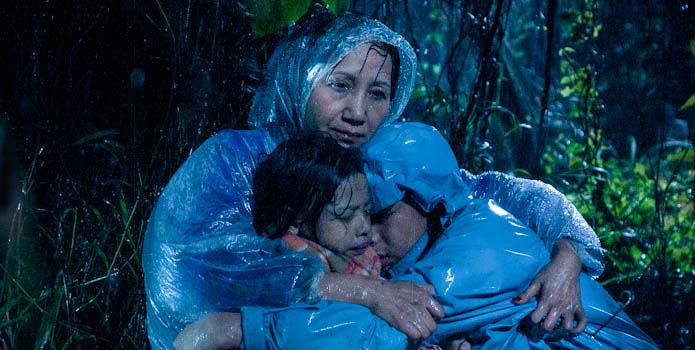Tsai Ming-liang won a Golden Lion (best picture) for ‘Vive L’Amour’ at the Venice Film Festival in 1994. Nineteen years later it is in the very same film festival that the Chinese director, representative of the Second New Wave of Taiwanese Cinema, decided to say farewell to film-making, with his last movie ‘Stray Dogs.’ ‘Jiaoyou’ portrays a father and his two children wandering through the margins of modern day Taipei, from the woods and rivers of the outskirts to the rain streaked streets of the city; as the drama dissolves in an overflowing stream of emotions.
Director Tsai Ming-liang discusses his good-bye flick:
You decided not to have a story in your film…
I’ve always opted for this kind of cinema, so there hardly is a story in my films. But this movie was probably the hardest one. I really worked hard in the whole process from the shooting to the editing: the goal was to get rid of the story. Actually originally there was a script, about an unemployed man and his family. So eventually the role remained but the script disappeared.
Therefore where you trying to recreate a mental flow, reflecting the pace of our mind, where time perception clashes with reality?
What I’m doing is giving back a certain freedom of time. The actors decide how long a certain scene is going to take, I’m also giving back the freedom to the viewers who can decide to continue observing or sleep or leave. I’m eliminating all kind of restrains. Sometimes when I watch the scenes while I shoot them and they become really long and boring, reality comes out of them, because life isn’t always that meaningful. That’s what intrigues me about these moments.
How about the sense of space: inside you always see the ceiling, outside you almost never see the sky, and in almost every shot you can see a way out at a distance…
I think the camera is a very mysterious tool and you can achieve the most incredible things with it. When we were doing the scenes outside I was attracted to the quality of the sand, on the contrary in the indoor scenes I thought the ceilings were so beautiful, I just had to shoot them.
This seems to be your most radical film, and you said it’s going to be your last one: is ‘Jiaoyou’ your statement before leaving film-making?
Life is always a part of the process of film-making for me, cinema is a medium, a language. So the question is what can you achieve with this tool and give to the audience. If you look at cinema or the history of cinema apparently the construction of a film has been ossified just as its rhythm: the speed and the time and how long a single take should last. So I try to reinvent the language of cinema and rediscover things that have been forgotten, so that the audience can make up what’s missing with their own imagination.

